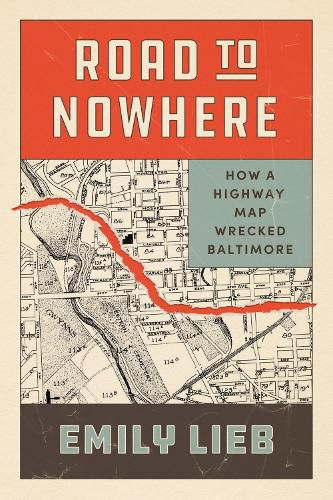Readings Newsletter
Become a Readings Member to make your shopping experience even easier.
Sign in or sign up for free!
You’re not far away from qualifying for FREE standard shipping within Australia
You’ve qualified for FREE standard shipping within Australia
The cart is loading…






Traces the birth, plunder, and scavenging of Rosemont, a Black middle-class neighborhood in Baltimore.
In the mid-1950s Baltimore's Rosemont neighborhood was alive and vibrant with smart rowhouses, a sprawling park, corner grocery stores, and doctor's offices. By 1957, a proposed expressway threatened to gut this Black, middle-class community from stem to stern.
That highway was never built-but it didn't matter: even the failure to build it destroyed Rosemont economically, if not physically. In telling the history of the neighborhood and the notional East-West Expressway, Emily Lieb shows the interwoven tragedies caused by racism in education, housing, and transportation policy. Black families had been attracted to the neighborhood when Baltimore's Board of School Commissioners converted several white schools into "colored" ones, but this also laid the groundwork for predatory real-estate agents who bought low from white sellers and sold high to determined Black buyers. Despite financial discrimination, Black homeowners built a thriving community before the City Council formally voted to condemn some nine hundred homes in Rosemont for the expressway, leading to deflated home values and even more predatory real estate deals.
Drawing on land records, oral history, media coverage, and policy documents, Lieb demystifies blockbusting, redlining, and prejudicial lending, highlighting the national patterns at work in a single neighborhood. The result is an absorbing story about the deliberate decisions that produced racial inequalities in housing, jobs, health, and wealth-as well as a testament to the ingenuity of the residents who fought to stay in their homes, down to today.
$9.00 standard shipping within Australia
FREE standard shipping within Australia for orders over $100.00
Express & International shipping calculated at checkout
Traces the birth, plunder, and scavenging of Rosemont, a Black middle-class neighborhood in Baltimore.
In the mid-1950s Baltimore's Rosemont neighborhood was alive and vibrant with smart rowhouses, a sprawling park, corner grocery stores, and doctor's offices. By 1957, a proposed expressway threatened to gut this Black, middle-class community from stem to stern.
That highway was never built-but it didn't matter: even the failure to build it destroyed Rosemont economically, if not physically. In telling the history of the neighborhood and the notional East-West Expressway, Emily Lieb shows the interwoven tragedies caused by racism in education, housing, and transportation policy. Black families had been attracted to the neighborhood when Baltimore's Board of School Commissioners converted several white schools into "colored" ones, but this also laid the groundwork for predatory real-estate agents who bought low from white sellers and sold high to determined Black buyers. Despite financial discrimination, Black homeowners built a thriving community before the City Council formally voted to condemn some nine hundred homes in Rosemont for the expressway, leading to deflated home values and even more predatory real estate deals.
Drawing on land records, oral history, media coverage, and policy documents, Lieb demystifies blockbusting, redlining, and prejudicial lending, highlighting the national patterns at work in a single neighborhood. The result is an absorbing story about the deliberate decisions that produced racial inequalities in housing, jobs, health, and wealth-as well as a testament to the ingenuity of the residents who fought to stay in their homes, down to today.